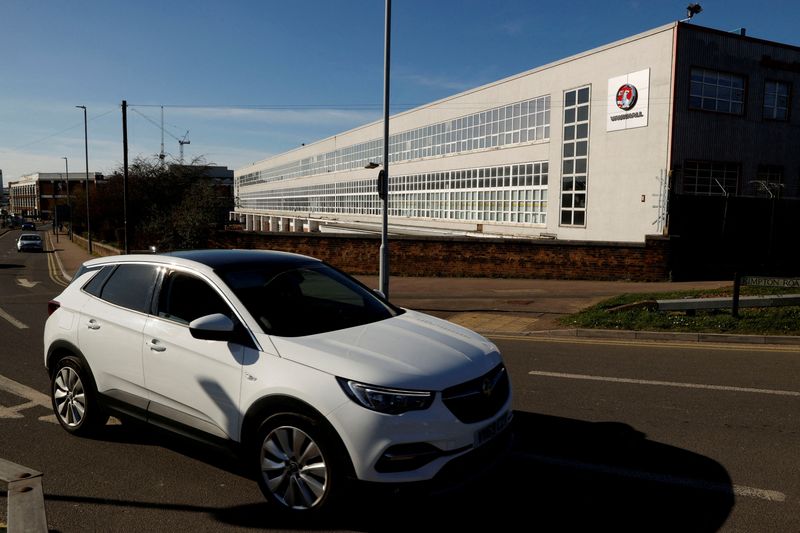(Reuters) - Britain's auto industry said on Friday it was looking to the upcoming budget to help boost competitiveness and investment in the sector in light of "increasing protectionism" that could hurt the UK economy.
The call comes amid concerns in Europe that the U.S. Inflation Reduction Act (IRA), which promises hundreds of billions of dollars of subsidies for electric vehicles and other clean technologies, could put companies based on the continent at a disadvantage.
"Recent global developments ... suggest increasing protectionism which, if not challenged or mitigated, could put the UK at a disadvantage," said Mike Hawes, CEO of the Society of Motor Manufacturers and Traders (SMMT), without referring directly to the IRA.
"To deliver a wholesale industrial transformation we need a competitive framework and a pitch that promotes advanced vehicle manufacturing internationally," he said.
British car production slipped 0.3% in January from a year earlier, mainly due to a shift from car to van-making at a major plant, while electric vehicle output jumped about 50%, the SMMT reported.
Britain produced 68,575 cars in January, with battery electric, plug-in hybrid and hybrid electric vehicles together accounting for 28,329 of the total.
"Automotive manufacturing can drive long-term growth for the low carbon economy but the sector needs competitive conditions to attract investment," Hawes said.

British finance minister Jeremy Hunt earlier this week said the U.S. IRA was a "very real competitive threat".
Hunt said that after the financial market turmoil of last year, which led former Prime Minister Liz Truss to resign, the government did not have large sums of money to provide similar subsidies. His budget is scheduled for March 15.